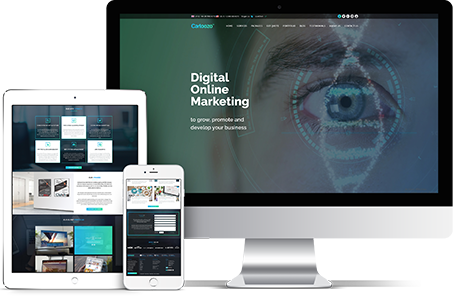SEO is difficult, but attainable. According to some online marketing evangelists and technical experts, if marketers optimise their websites in a proper way, they can achieve their goals in a seamless manner.
They often suggest essential tactics, such as:
Designing SEO-friendly and relevant website
Website friendliness is one of the most important aspects when it comes to achieving good rankings. Marketers need to understand that they must create a website that can be easily indexed and crawled by search engines.
Here are a few tips to make a website SEO-friendly:
- Keep your site’s content in HTML text format.
- Focus on the labelling of images.
- Strengthen your site’s internal linking structure. (According to Moz, internal links are links that go from one page on a domain to a different page on the same domain. They are commonly used in main navigation.)
- Never hide your website’s navigation.
- Focus on keyword targeting.
- Carefully use robots.txt. (According to Moz, robots.txt is a text file webmasters create to instruct web robots (typically search engine robots) how to crawl pages on their website.)
- Understand how search engines index and follow links.
XML Sitemaps
It is a well-known fact that almost all search engines support and understand the protocol of XML sitemaps. As a marketer, you should use it to provide a list of URLs to search engines so that they can crawl and index them efficiently.
Tips:
- Keep your XML sitemap updated.
- Remove duplicate URLs from the sitemap.
- Use an XML sitemap to increase the value of a website.
- Create an XML sitemap in a suitable format.
- Use a high-quality XML sitemap generator.
- Create mobile, image and video sitemaps separately.
- Don’t forget to upload XML sitemap to the root directory.
- Submit XML sitemap to webmaster tool.
Information architecture
Most marketers do not understand the importance of information architecture, which is a big mistake. In practical terms, it is a logical flow of information. If you want to make your website
SEO and user friendly, carefully design your site’s architecture.
Tips:
- Keep the flow of information logical to improve user’s browsing experience.
- Use 301 redirection wherever possible.
- Understand ins and outs of HTTP server codes.
- Use static and keyword-targeted URLs.
- Follow a standard site’s architecture protocol.
- Create a visual hierarchy.
- Structure your site’s category logically.
- Address the issue of pagination. (https://moz.com/blog/pagination-best-practices-for-seo-user-experience)
- Solve technical issues that prevent URL crawling.
- Follow W3C guidelines.
- Remove problematic elements from your website.
So, follow the above mentioned SEO tactics to achieve your objectives.





